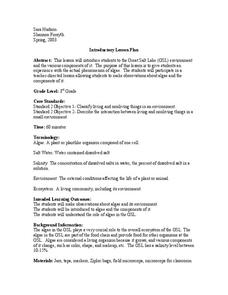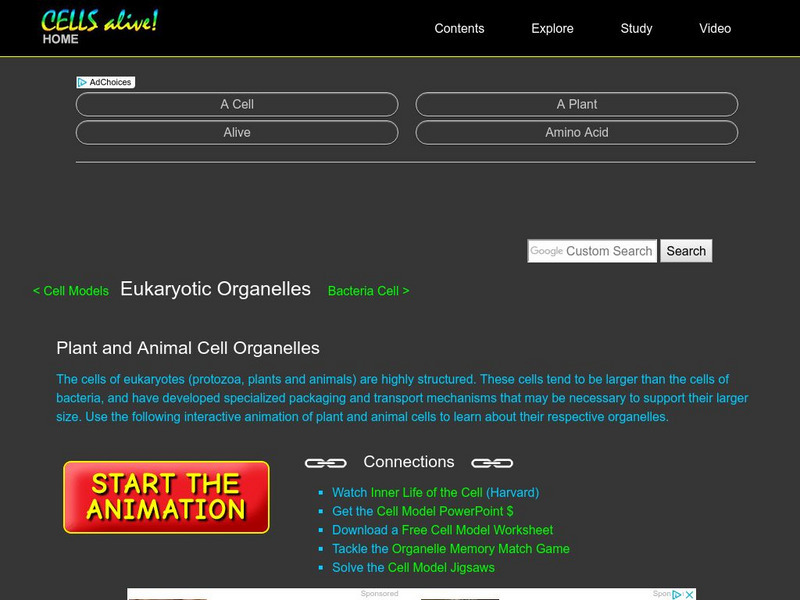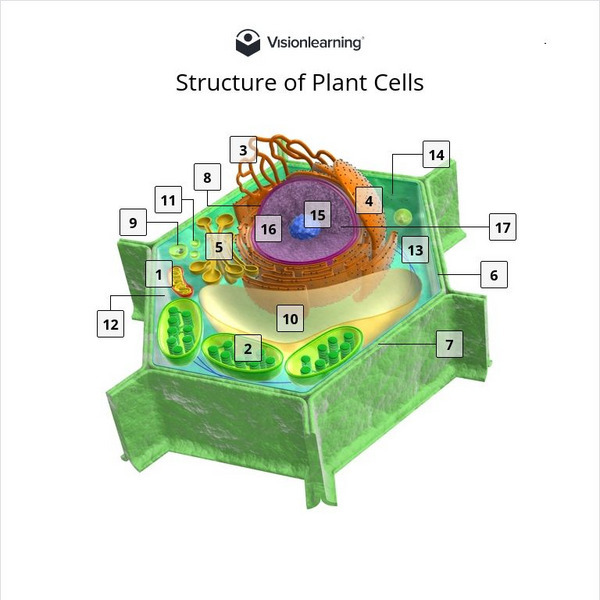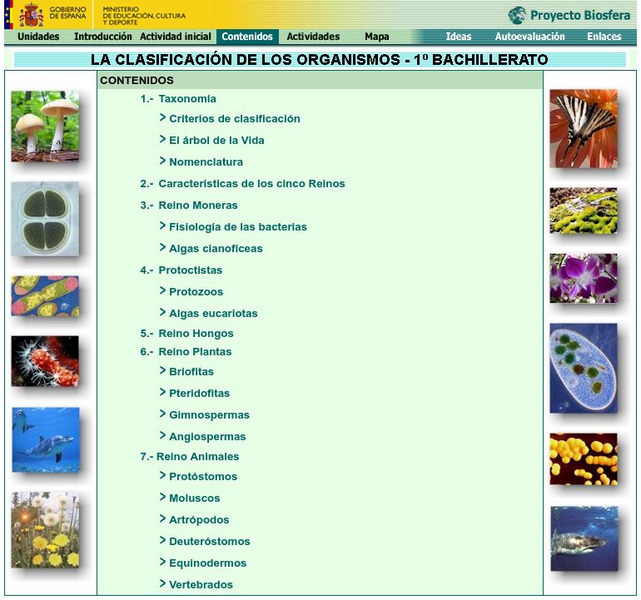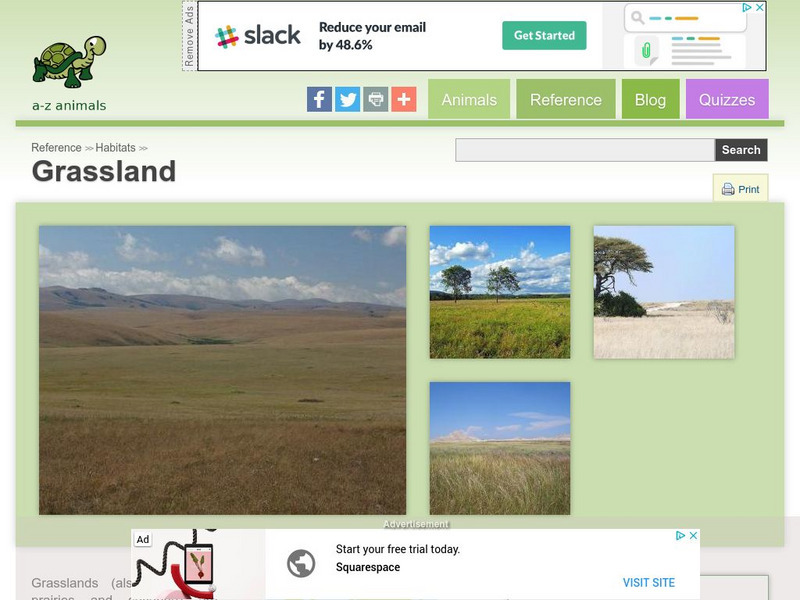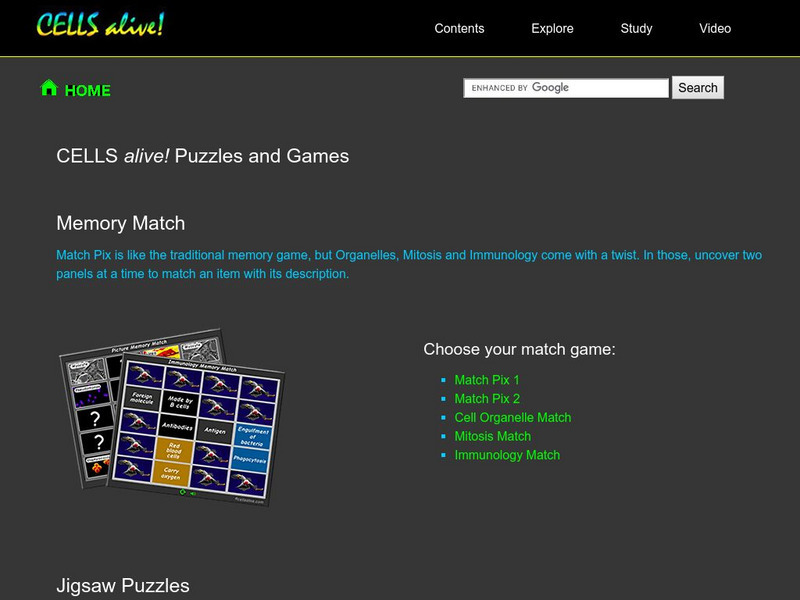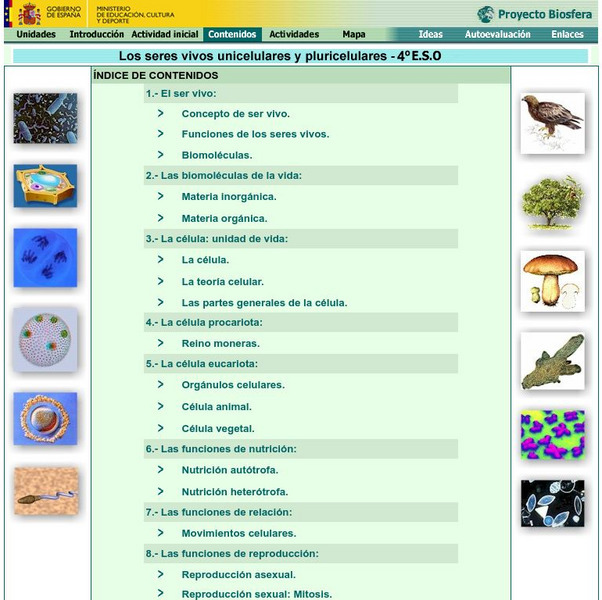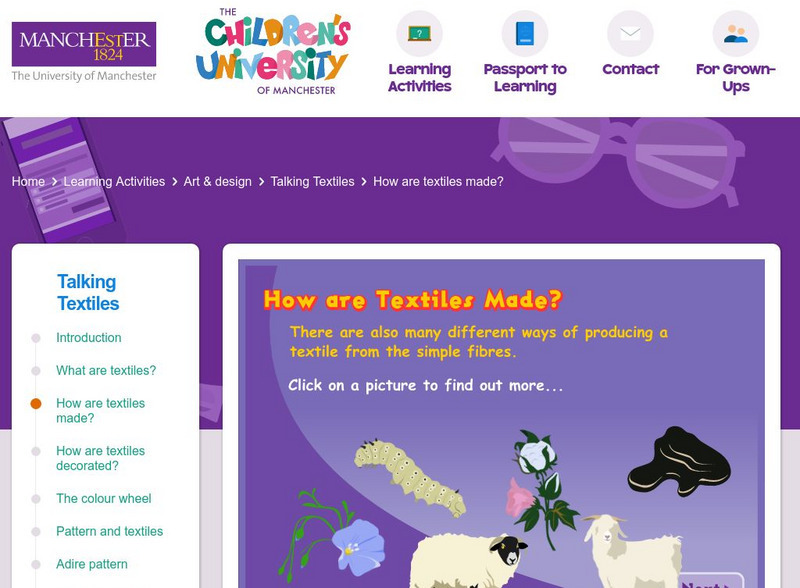Curated OER
Great Salt Lake
Third graders are introduced to the Great Salt Lake (GSL) environment and the various components of it. They make observations about algae and its environment and discuss why it is considered a living organism and various components of...
Curated OER
Alaska's Physical Systems and History
Students read about Alaska's physical systems and determine how Alaska's physical makeup has impacted its history. They create timelines of their particular physical system.
Curated OER
Color Your World with Changes --- the Camouflage Game
Seventh graders, after predicting dominant colors foud in their habitat or garden, visit heir area on a monthly basis. They search for colored toothpicks, then graph the results, determining the dominant color for the month.
Curated OER
Goals of the Diversity of Life Unit
Students are introduced to the unit on the importance of diversity of life and the role that interdependence plays in our worlds. this is part of a multi-lesson unit on the diversity of life.
Curated OER
Marketing the New Hybrids
Young scholars work together to develop a hypothesis on the natural and applied hybridization of certain species in an ecosystem. Using the internet, they research this topic and read any recent articles or studies. They must note the...
Cells Alive
Eucaryotic Cell Interactive Animation
Explore plant and animal cells with this interactive site. Explanations are provided for each cell organelle.
Vision Learning
Visionlearning: Structure of Plant Cells
An interactive plant cell that presents labels and definitions of the different cell parts when selected.
Soft Schools
Soft Schools: Comparing Plant and Animal Cells Quiz
Take an interactive quiz over plant and animal cells. After completing the quiz, check your score, and then revisit any incorrect question for further review.
PBS
Pbs Learning Media: Animals and Plants Can Live in a City!
In this interactive lesson, students learn that animals need air, food, water, and shelter, while plants need air, sunlight, and water. Students watch videos and engage with drawing and sorting activities to reinforce their learning....
National Institute of Educational Technologies and Teacher Training (Spain)
Ministerio De Educacion: La Clasificacion De Los Organismo
This unit will describe the five kingdoms and their main characteristics. It includes 20 interactive activities.
Annenberg Foundation
Annenberg Learner: The Habitable Planet: Unit 9: Biodiversity Decline
This is an extensive learning module on biodiversity and its decline. It looks at ways biodiversity is threatened, the possibility of another mass extinction, the causes and consequences of habitat loss, factors that drive biodiversity...
Tramline
Virtual Field Trip: Temperate Forest Biome
Travel with your students on a Virtual Field Trip to learn about Temperate Forest Biomes. You will also discover many informative and interactive websites.
PBS
Pbs Learning Media: Mitosis
This video segment, adapted from the Interactive Secret of Life videodisc, explains the stages of mitosis, the process of dividing equally a cell's massive jumble of DNA just prior to cell division. [1:34]
A-Z Animals
A Z Animals: Reference: Habitats: Grassland
Find out about the plant and animal interactions within the grassland ecosystem.
A-Z Animals
A Z Animals: Reference: Habitats: Rainforest
Find out about the plant and animal interactions within the rainforest ecosystem.
Cells Alive
Cells Alive!: Puzzle Page
Try your hand at these interactive jigsaw puzzles while studying cell biology. Put together images of animal and plant cells, red blood cells, streptococcus, and naphthalene.
National Institute of Educational Technologies and Teacher Training (Spain)
Ministerio De Educacion: La Formas De Organizacion De La Vida
In this unit you will learn about the origin of the cells and their differences. It includes 15 interactive activities.
National Institute of Educational Technologies and Teacher Training (Spain)
Ministerio De Educacion: Clasificacion De Los Seres Vivos
All known form of life gathers in large groups, which are called kingdoms. This site provides a thorough overview of the five kingdoms with many illustrations. The lessons contain 15 interactive activities.
National Institute of Educational Technologies and Teacher Training (Spain)
Ministerio De Educacion: Los Seres Vivos Unicelulares Y Pluricelulares
In this unit you will be introduced to the complexity of living things. It also reviews the kingdom of nature, differentiating between their main features from those who are microscopic unit-cellular to the multi-cellular visible to the...
University of Manchester
Children's University of Manchester: Talking Textiles: How Are Textiles Made?
Interactive exploration of textiles and cloth derived from plants, animals, and petrochemicals.
American Museum of Natural History
American Museum of Natural History: Breed O Logy Card
Flip this interactive OLogy card to find questions and answers, fast facts, and other bite-size pieces of information to help you understand the breeding process of plants and animals. Also learn about teosinte, a grass that Native...
US Department of Energy
U.s. Department of Energy: Geothermal Technologies: Enhanced Geothermal System
Through both an interactive animation and a short video, learn about the enhanced geothermal system as a means to utilize the Earth's heat as an energy source for our electricity needs.
That Quiz
That Quiz: Celulas
Free interactive practice tests aid in learning the Prokaryote Endomembrane system, Cell membrane, Plant cell, Animal cell and Neuron cell. Tests are timed and keep track of right and wrong answers.
Cells Alive
Cells Alive!
Animation studio that specializes in medical illustration lets you explore the structure and function of plant cells and animal cells, using videos and interactive graphics with clickable parts that lead to more detail.
